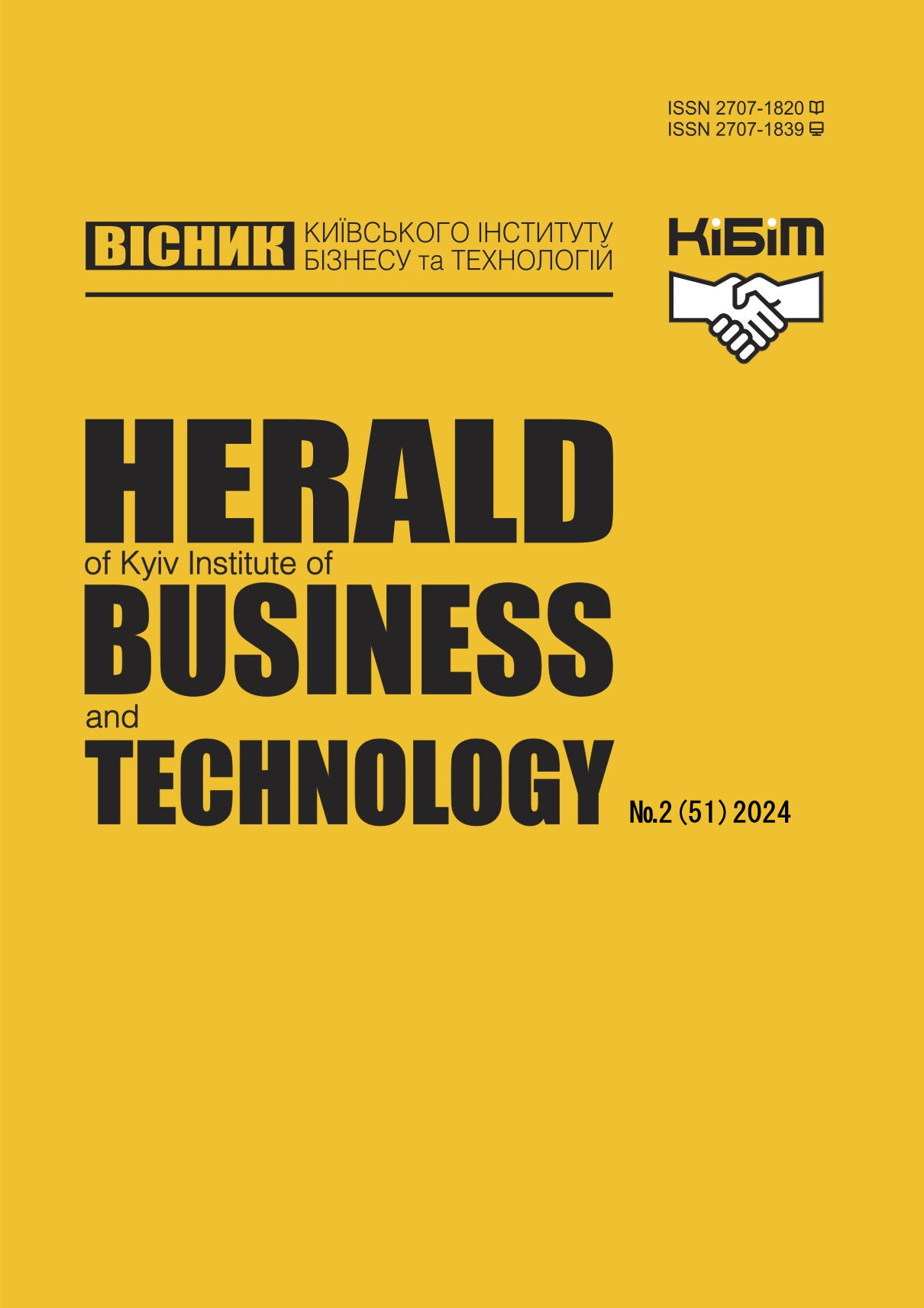FORMATION OF THE SCIENTIFIC PROFILE OF COUNTRIES: FROM COMPETENCES TO THE GLOBAL SCIENCE GRADIENT
Abstract
The article examines the key aspects of forming the scientific profile of countries and the drivers of leadership competency development in the context of European integration, globalization, and digital transformation. The authors analyze the adaptation of the ERA (European Research Area), EHEA (European Higher Education Area), and EU 2030 strategy competency frameworks to the conditions of Poland and Ukraine. Factors contributing to the gap in scientific competencies between countries are analyzed, including infrastructural inequality, differences in research funding, education standards, and access to global knowledge. The concept of the «science gradient» is introduced, reflecting the uneven development of scientific knowledge and technologies across countries. Emphasis is placed on the need to develop leadership competencies such as strategic thinking, innovation, change management, international collaboration, and efficient resource utilization, which are critical for successful integration into the European and global scientific landscape. Recommendations are proposed for harmonizing standards and bridging competency gaps to enhance the competitiveness of Poland and Ukraine in science, education, and innovation. As a result of processing the research material, the authors determined that the concept of the gradient of the country's science and the gap of competences emphasize deep differences in the scientific profile of different countries and affect the international scientific hierarchy. A country's profile in the science gradient is determined on the basis of such factors as the level of education, the infrastructure of scientific research institutions, the number of publications in international scientific journals, participation in international research and patent activity. This reflects both the level of scientific development and the country's contribution to world science. Thus, the «gradient of a country's science» is a multifactorial characteristic that reflects its place in the world scientific system and depends on the level of competence of its scientific personnel. The authors note that the formation of the scientific profile of countries and the development of leadership competencies are key conditions for integration into the global scientific space, especially in the context of digital transformation, European standards and strategies (ERA, EHEA, EU 2030 strategy).
References
2. Aslam, M.S. (2018). Current trends and issues affecting academic libraries and leadership skills. Library Management, 39, 78-92.
3. Clark, T.R.; Korecki, Т. (2007). Postaw na charakter i kompetencje : stanowisko i władza nie zrobią z ciebie lidera. Polskie Wydawnictwo Ekonomiczne.
4. Covey, S.R. (2021). 7 habits of effective action. Rebis.
5. Danylevych, N., Kokhan, M., Snovydovych, I. (2019). Development of students’ leadership competencies in higher education. Visnyk of the Lviv University. Series Economics.
6. Dulewicz, V, Higgs, MJ. (2003). Design of a new instrument to assessleadership dimensions and styles. Henley Working Paper Series HWP0311. Henley-on-Thames, Henley Management College.
7. ERA (European Research Area) Komisja Europejska – ERA: https://ec.europa.eu/info/research-and-innovation_en
8. ЕHEA (European Higher Education Area) EHEA – European Higher Education Area: http://www.ehea.info/
9. Fernández, L.M., Rey, E.F. (2010). Competencias emprendedoras y desarrollo del espíritu empresarial en los centros educativos. Educacion Xx1, 13, 15-38.
10. Lans, T., Baggen, Y., Ploum, B. (2018). Towards more synergy in entrepreneurial competence research in entrepreneurship education.
11. Leoni, R. (2011). Employability of graduates and development of competencies: mind the gap and mind the step! Empirical evidence for Italy.
12. Loureiro, P., Dieguez, T., Ferreira, I. (2022). Higher education as a driver for sustainable transformation and leadership. International Journal of Multidisciplinary Research and Growth Evaluation.
13. Mahlangu, V.P. & Moloto, B.M. (2022). Strategic Competencies and Skills for Future University Leaders. Leadership and Management Strategies for Creating Agile Universities.
14. Maxwell, J.C. (2008). Leadership Gold. Lessons I've Learned from a Lifetime of Leading. HarperCollins Leadership.
15. Morgan, J. (2022). Przywódca przyszłości: 9 postaw i umiejętności przywódców przyszłej dekady. Rebis.
16. Mrówka, R., Wachowiak, P. (2019). Kształtowanie liderów. Oficyna Wydawnicza SGH. Szkoła Główna Handlowa.
17. Nordin, N.B. (2021). Leadership Competencies Development Among Academic Staffs: A Preliminary Observation. Malaysian Journal of Social Sciences and Humanities (MJSSH).
18. O’Brien, E., Robertson, P. (2009). Future leadership competencies: from foresight to current practice. Journal of European Industrial Training, 33, 371-380.
19. Oliveira, S.R., Saraiva, M.A. (2023). Leader skills interpreted in the lens of education 4.0. IEEE International Symposium on Multimedia.
20. Podgórskа, М. (2018). Kompetencje przywódcze kierownika projektu jako krytyczny czynnik sukcesu w zarządzaniu projektami. Monografia. Wydawnictwo Politechniki Śląskiej.
21. Pyżalski, J. (2015). Kompetencje przywódcze dyrektorów szkół i placówek w krajach Unii Europejskiej oraz w Stanach Zjednoczonych. ORE.
22. Reis, V., & Macário, R. (2012). Competences Gap in European Railways Education. Transportation Research Record, 2275, 111-119.
23. Report by the Bologna Working Party on Qualifications Frameworks submitted to the conference of Ministers of Education of the Bologna Process, London, May 2007 Bologna Process National Qualifications Frameworks London 2007 https://ehea.info/cid102844/national-qualifications-frameworks-2009.html
24. Researcher Development Framework, Careers Research and Advisory Centre (CRAC) Limited, vitae.ac.uk/rdf, 2010 ISBN: 978-1-906774-18-9, Version 2, April 2011.
25. Seikkula-Leino, J., Salomaa, M. (2021). Bridging the Research Gap – A Framework for Assessing Entrepreneurial Competencies Based on Self-Esteem and Self-Efficacy. Education Sciences.
26. Seikkula-Leino, J., Salomaa, M., Jónsdóttir, S.R., McCallum, E., Israel, H. (2021). EU Policies Driving Entrepreneurial Competences-Reflections from the Case of EntreComp. Sustainability.
27. Štimac Н, Bilandžić Tanasić К. (2023). Сompetencies and skills: gap between higher education and labour market. EKON. MISAO I PRAKSA DBK. BR.2, 615-628. https://hrcak.srce.hr/file/448616 DOI: 10.17818/EMIP/2023/2.15
28. Strategia UE 2030 Komisja Europejska – Strategia UE 2030: https://ec.europa.eu/info/strategy/strategic-planning-and-programming/strategic-agendas/
29. Tokar, J., Oleksa-Marewska, K. (2021). Rekrutacja liderów przez pryzmat kultury organizacyjnej: profil kompetencyjny lidera przyszłości. Difin.
30. Zaleśna, A. (2019). Kompetencje zarządzających w przedsiębiorstwach społecznie odpowiedzialnych. Difin.





